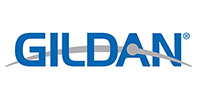
RISC-V Shirt
A classic cotton tee emblazoned with the Wikipedia article on RISC-V ↗.
cotton tee emblazoned with the Wikipedia article on RISC-V ↗.- Preshrunk jersey knit
- Seamless double-needle 2.2 cm collar
- Taped neck and shoulders
- Tear away label
- Double-needle sleeve and bottom hems
- Quarter-turned to eliminate centre crease
RISC-V (pronounced "risk-five") is a free and open standard instruction set architecture (ISA) based on reduced instruction set computer (RISC) principles. Unlike proprietary ISAs such as x86 and ARM, RISC-V is described as "free and open" because its specifications are released under permissive open-source licenses and can be implemented without paying royalties.
RISC-V was developed in 2010 at the University of California, Berkeley as the fifth generation of RISC processors created at the university since 1981. In 2015, development and maintenance of the standard was transferred to RISC-V International, a non-profit organization based in Switzerland with more than 4,500 members as of 2025.
RISC-V is a popular architecture for microcontrollers and embedded systems, with development of higher-performance implementations targeting mobile, desktop, and server markets ongoing. The ISA is supported by several major Linux distributions, and companies such as SiFive, Andes Technology, SpacemiT, Synopsys, Alibaba (DAMO Academy), StarFive, Espressif Systems, and Raspberry Pi offer commercial systems on a chip (SoCs) and microcontrollers (MCUs) that incorporate one or more RISC-V compatible processor cores.
About Wikishirt
Wikishirt is a retail experiment that lets you buy a shirt with any Wikipedia Article printed on it. There are over 5 million Wikipedia articles, so we have over 5 million shirts.Check out our homepage for random featured shirts and more!